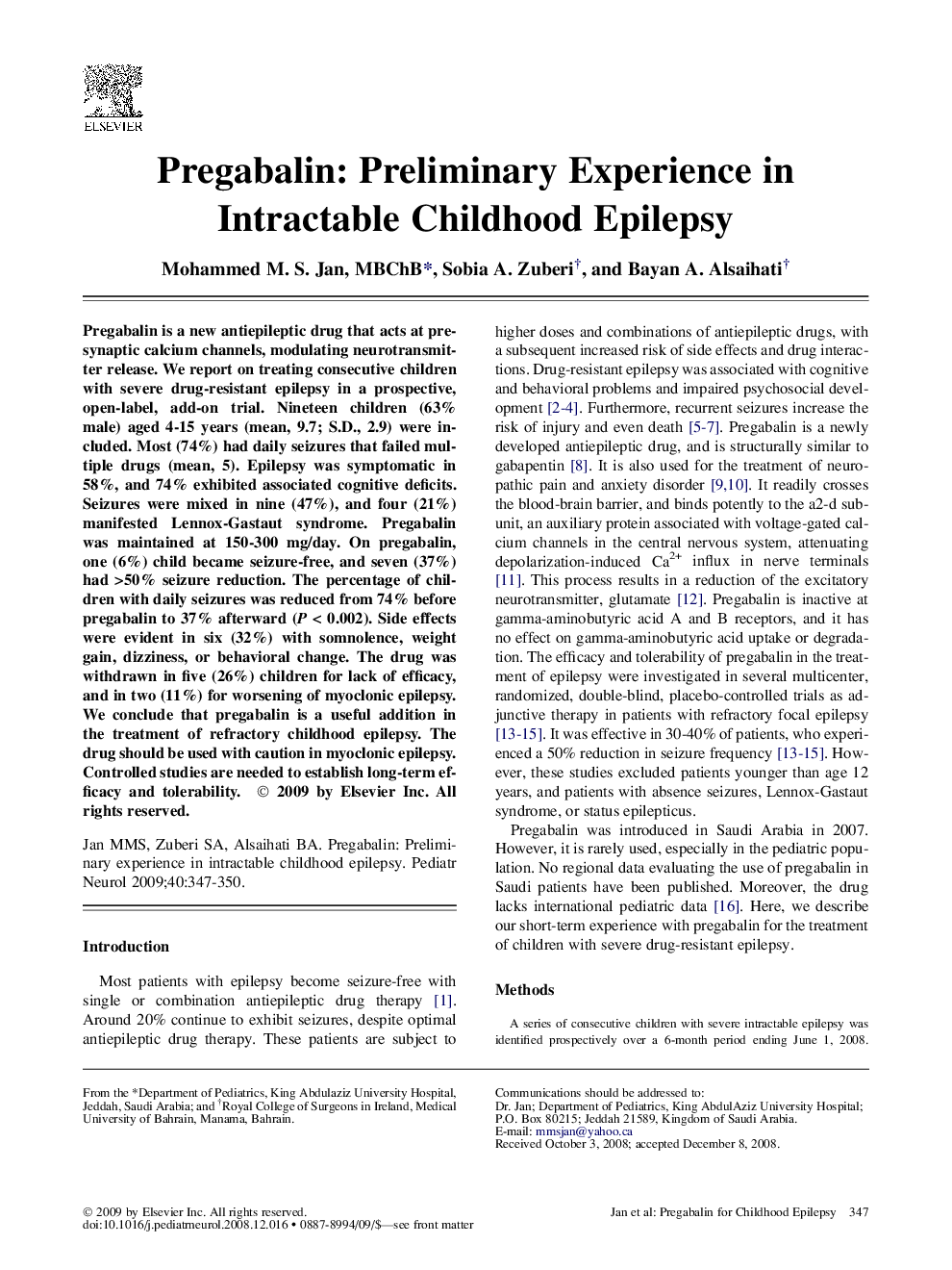| کد مقاله | کد نشریه | سال انتشار | مقاله انگلیسی | نسخه تمام متن |
|---|---|---|---|---|
| 3086347 | 1189856 | 2009 | 4 صفحه PDF | دانلود رایگان |

Pregabalin is a new antiepileptic drug that acts at presynaptic calcium channels, modulating neurotransmitter release. We report on treating consecutive children with severe drug-resistant epilepsy in a prospective, open-label, add-on trial. Nineteen children (63% male) aged 4-15 years (mean, 9.7; S.D., 2.9) were included. Most (74%) had daily seizures that failed multiple drugs (mean, 5). Epilepsy was symptomatic in 58%, and 74% exhibited associated cognitive deficits. Seizures were mixed in nine (47%), and four (21%) manifested Lennox-Gastaut syndrome. Pregabalin was maintained at 150-300 mg/day. On pregabalin, one (6%) child became seizure-free, and seven (37%) had >50% seizure reduction. The percentage of children with daily seizures was reduced from 74% before pregabalin to 37% afterward (P < 0.002). Side effects were evident in six (32%) with somnolence, weight gain, dizziness, or behavioral change. The drug was withdrawn in five (26%) children for lack of efficacy, and in two (11%) for worsening of myoclonic epilepsy. We conclude that pregabalin is a useful addition in the treatment of refractory childhood epilepsy. The drug should be used with caution in myoclonic epilepsy. Controlled studies are needed to establish long-term efficacy and tolerability.
Journal: Pediatric Neurology - Volume 40, Issue 5, May 2009, Pages 347–350